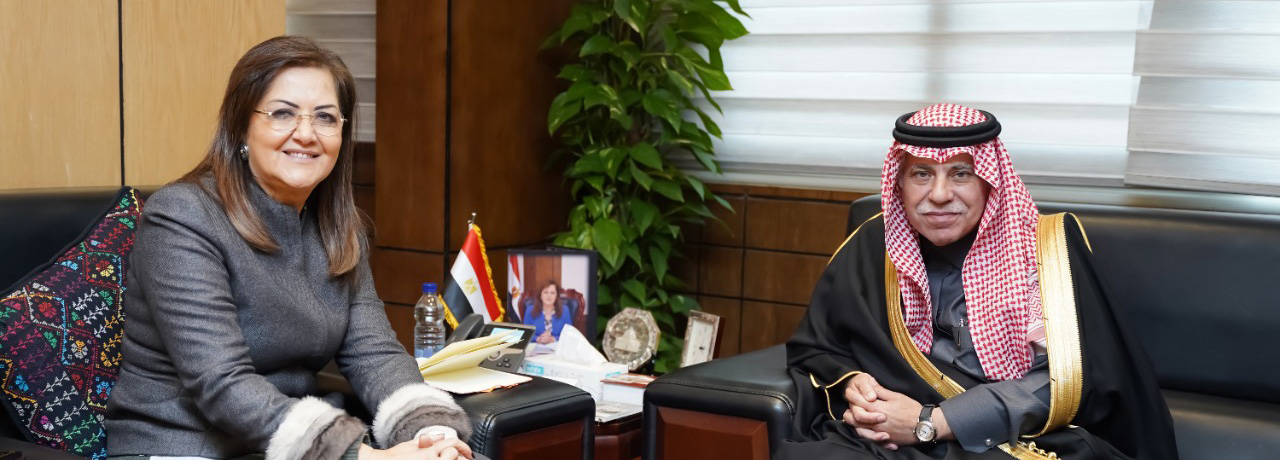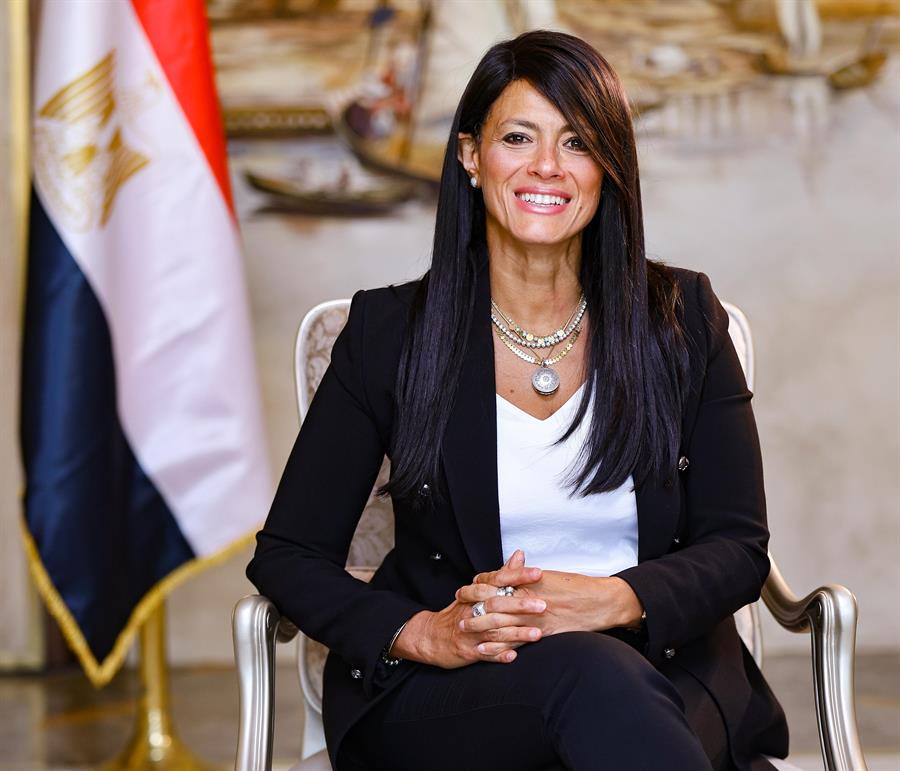On the sidelines of the meetings of the Governance Council of AATB Programme: Egypt's Planning Minister, Saudi Minister of Commerce discuss ways to enhance future cooperation between the two countries

19 March 2022
H.E. Dr. Hala El-Said, Minister of Planning and Economic Development, received on Saturday Dr. Majid Al-Qasabi, Saudi Minister of Commerce at the Ministry's general office to discuss ways to enhance future cooperation between the two countries, on the meeting of the Governance Council of the Arab Africa Trade Bridges (AATB) Programme, which Egypt chairs for a year.
At the beginning of the meeting, Dr. Hala El-Said stressed the keenness to consolidate relations between the Egyptian and Saudi business communities and to strengthen economic relations between the two countries in various fields, especially trade, industrial, and investment.
El-Said pointed to the importance of the strategic partnership and the continuation of the process of cooperation in the context of the specificity and growth of fruitful cooperation relations between Egypt and Saudi Arabia.
El-Said reviewed the most prominent opportunities and areas for developing relations within the framework of effective partnerships with the leading private sector companies in the two countries, and the mechanisms for converting obstacles into investment opportunities in light of the crisis of the outbreak of the Coronavirus and its economic repercussions.
El-Said pointed to what has been done in recent years to issue a package of laws, legislation, and institutional reforms in Egypt to simplify the procedures for setting up projects and encourage the private sector and local and foreign investment.
El-Said referred to the establishment of the Sovereign Fund of Egypt as one of the mechanisms for mobilizing joint financing for development efforts and strengthening partnerships with the private sector.
Dr. Hala El-Said praised the Egyptian-Saudi Business Council, which, since its establishment in 1989, has become a distinguished platform that brings together the business communities of the two countries to discuss ways to enhance cooperation in various fields, especially the commercial and investment fields.
El-Said stressed the importance of the council's role in introducing the representatives of the two countries to the climate and opportunities for direct and indirect investment and communicating with the responsible authorities in the two countries.
During the meeting, Dr. Hala El-Said referred to the recent signing of a joint report, on agreeing on a draft agreement formula, between the governments of the Arab Republic of Egypt and the Kingdom of Saudi Arabia, regarding the Saudi Public Investment Fund investing in Egypt.
For his part, Dr. Maged Al-Qasabi said that Egypt and Saudi Arabia have historical relations and are united by brotherhood, Arabism, and neighborly relations, adding that during his visit to Egypt he witnessed an unprecedented development movement, saying that this approach reflects a culture of interaction and hope for investors, stressing his wishes for Egypt more prosperity.









